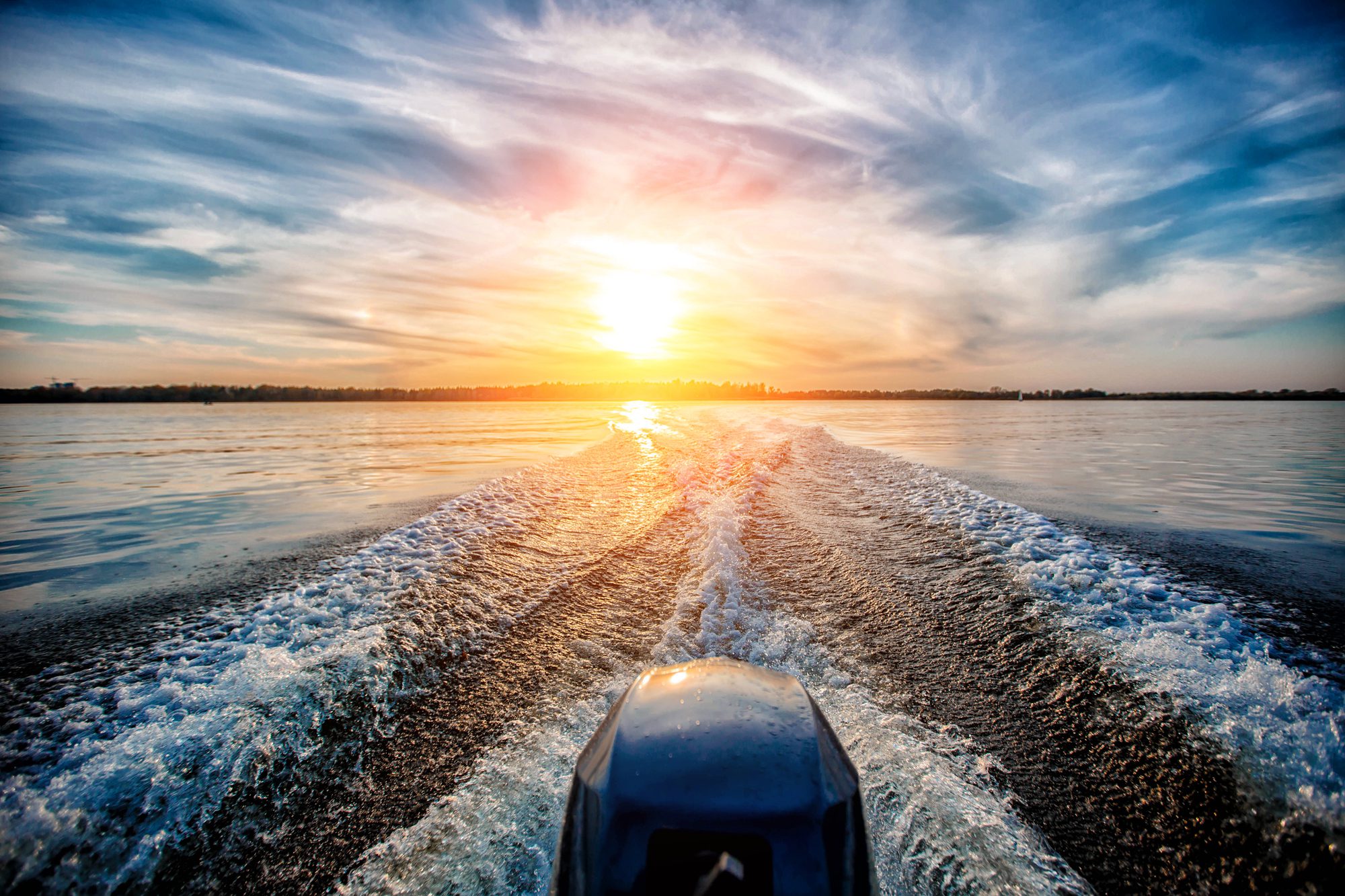It’s officially summer, and if you’re like us, you’re itching to get out there and enjoy the sun and warm weather. One of the best ways to do that is on the water! If boating is a part of your summer plans, make sure you think ahead with safety in mind. Whether you have a paddle boat or a power boat, here are five tips to help you make sure everything goes smoothly once you set sail.
Don’t forget the maintenance essentials.
You’re ready to get your boat out of storage after months of anticipation – we know it’s exciting, but don’t move too fast! Before you get your boat back on the water, you need to perform some basic maintenance and make sure everything is operating properly: charge any batteries, change the oil, and check all belts, hoses and cables.
Beyond the basic maintenance your boat requires, don’t forget to check up on state and federal regulations that might have changed since last season. Make sure your registration and insurance are up to date, and that you have all certifications that are required (don’t forget your fishing license if you need it.).
Since you likely haven’t used your boat trailer since the last time you used your boat, it needs to be checked as well. Repack bearings, tighten lug nuts and inspect the tires. Test the lights and turn signals and check the safety chains and hitch.
Follow a pre-departure checklist to avoid any potential issues.
After you’ve completed the necessary maintenance, it’s time to prepare for your day on the water. Before you go, make sure you let a friend or family member know what your plans are – including where you’re going and when you expect to return. Test your communication devices and secure your keys by attaching them to a floating bobber.
Next, have an emergency or evacuation plan in place should anything go wrong, and communicate that plan with your passengers. You should also review the boat’s controls, location of personal flotation devices and fire extinguisher with your passengers. Lastly, check the weather – and don’t head out if the forecast is calling for storms in the area.
Load everything you need for a successful and safe trip
When you head out on the water, have your boat well stocked with everything you need in any kind of unexpected situation. Always carry your boat certificate and registration. Make sure you have a personal flotation device for each passenger aboard the boat, and don’t forget to keep a fully-stocked emergency kit on board as well. It may also be a good idea to keep a functioning fire extinguisher on board, depending on the type of boat you have.
Practice safe boating behaviors – and ask your passengers to practice them too
The best way to avoid accidents or injuries on a boat is to be diligent, and to be clear with all of your passengers about practicing safe behavior. First, always be aware of your surroundings, including water conditions and other boats in the area. Make sure you do not exceed the number of passengers safely allowed on the vessel, and shut off the engine while passengers are getting on or off the boat. Adults should wear their protective flotation devices or have them nearby. Children under seven are required by law in Missouri to wear their flotation devices at all times, unless in an enclosed cabin.
Make sure you’re covered if something does go wrong
Accidents can happen to anyone, even boaters with years of experience on the water. And while boating is all about feeling carefree out on the open water, the truth is that owning and operating a boat comes with financial risks. One way to leave those worries on dry land is to get boat insurance (also called watercraft insurance).
Standard boat insurance usually covers physical damage to the boat and liability, or damage you may cause to other boats or people, along with associated legal costs. Check your policy to make sure it will cover the cost of cleaning up any oil spillages, as well. Optional elements of boat insurance include coverage for theft or damage to the personal possessions kept on your boat, such as sports or fishing equipment. Another optional add-on is boat towing and assistance if your boat breaks down out on the water.
Even with personal watercraft insurance, you may want to consider additional coverage in the form of an umbrella policy. If your watercraft policy limit were to be exhausted – for example, in the case that you were found to be at fault for property damage or personal injury – an umbrella or excess liability policy could extend those policy limits and provide an additional layer of financial protection.
If you’re unsure whether you need more coverage, give us a call or fill out the form below. We’re here to help set you up with a policy that fits your needs and your budget.

